Folic acid is important for pregnant women both before and during their pregnancy, as it helps the foetus to develop healthily. It also reduces the risk of baby neural tube defects (NTDs) such as spina bifida.
When should I take folic acid?
The Department of Health recommends that women who are trying to conceive should take a daily supplement of 400 micrograms of folic acid (or vitamin b9 as it's also known as) – and continue to take this dose during the first 12 weeksof pregnancy.
During the first 12 weeks of your pregnancy, your baby’s spinal cord is developing so folic acid is very important. It is safe to continue to take folic acid after 12 weeks.
If you didn’t start taking folic acid supplements before you became pregnant, you can start to take them as soon as you find out.
A 2019 study published by BioMed Central Medicine has suggested that cognitive skills in seven-year-olds could be increased if their mums continued to take folic acid after the first 12 weeks.
How much folic acid do I need to take?
Your recommended daily allowance of folic acid in pregnancy is 400 micrograms a day.
The NHS says your doctor may tell you to take a higher dose of folic acid if there's a higher risk of neural tube defects during your pregnancy.
You may have a higher risk if you have/are:
Had a pregnancy affected by a neural tube defect
Have a neural tube defect
Or your partner have a family history of neural tube defects
Have diabetes
Very overweight
Sickle cell disease
Taking certain epilepsy medicines
Side effects of folic acid
Although most adults don't experience side effects from taking folic acid, the NHS says high doses can cause:
Feeling sick (nausea) - but if you're pregnant, this is more likely to be morning sickness
Loss of appetite
Bloating or wind
They advise talking to your pharmacist or doctor if these side effects bother you, get worse or don't go away.
Can folic acid increase male fertility?
While a healthy diet should give men all the folic acid they need, the science behind men taking on additional folic acid suggests that high levels of the nutrient in a man’s diet can lead to higher-quality sperm, which, in turn, leads to fewer birth defects.
A studyby the University of California at Berkeley found that ‘men who had lower levels of folic acid in their diet had a higher rate of abnormal chromosomes in their sperm.’
The researchers found that men reporting the highest intake of folate (folic acid) had 19 percent lower rates of sperm with abnormal numbers of chromosomes than men with moderate folate intake, and 20 percent lower rates compared with men in the low folate intake group.
-
Learn more about how taking folic acid can be effective for prospective dads: The importance of folic acid for male fertility
Where can I buy folic acid supplements?
You can buy folic acid supplements from pharmacies, large supermarkets, health food stores, online or from your GP.
The NHS says if you want to get your folic acid from a multivitamin tablet, make sure the tablet does not contain Vitamin A (or retinol).
What foods contain folic acid?
You can add certain foods, such as different fruit and vegetables to your diet that contain levels of folic acid, although a supplement might be easier as you know you’re getting your recommended amount of vitamins and minerals all in one go with a supplement.
Foods that contain folic acid include:
Green, leafy vegetables
Brown rice
Granary bread
Breakfast cereals fortified with folic acid
Liver is rich in folic acid but is NOT safe to eat during pregnancy – liver is rich in Vitamin A, which can cause birth defects in your baby.
Nutrimum cereal bars contain your recommended dose of 400mg of folic acid in each bar – handy to grab and eat on the go, without having to take a tablet.
These bars can be helpful if morning sickness means you have trouble taking pills, plus you can nibble on a bar at your leisure.
Folic acid supplements to buy
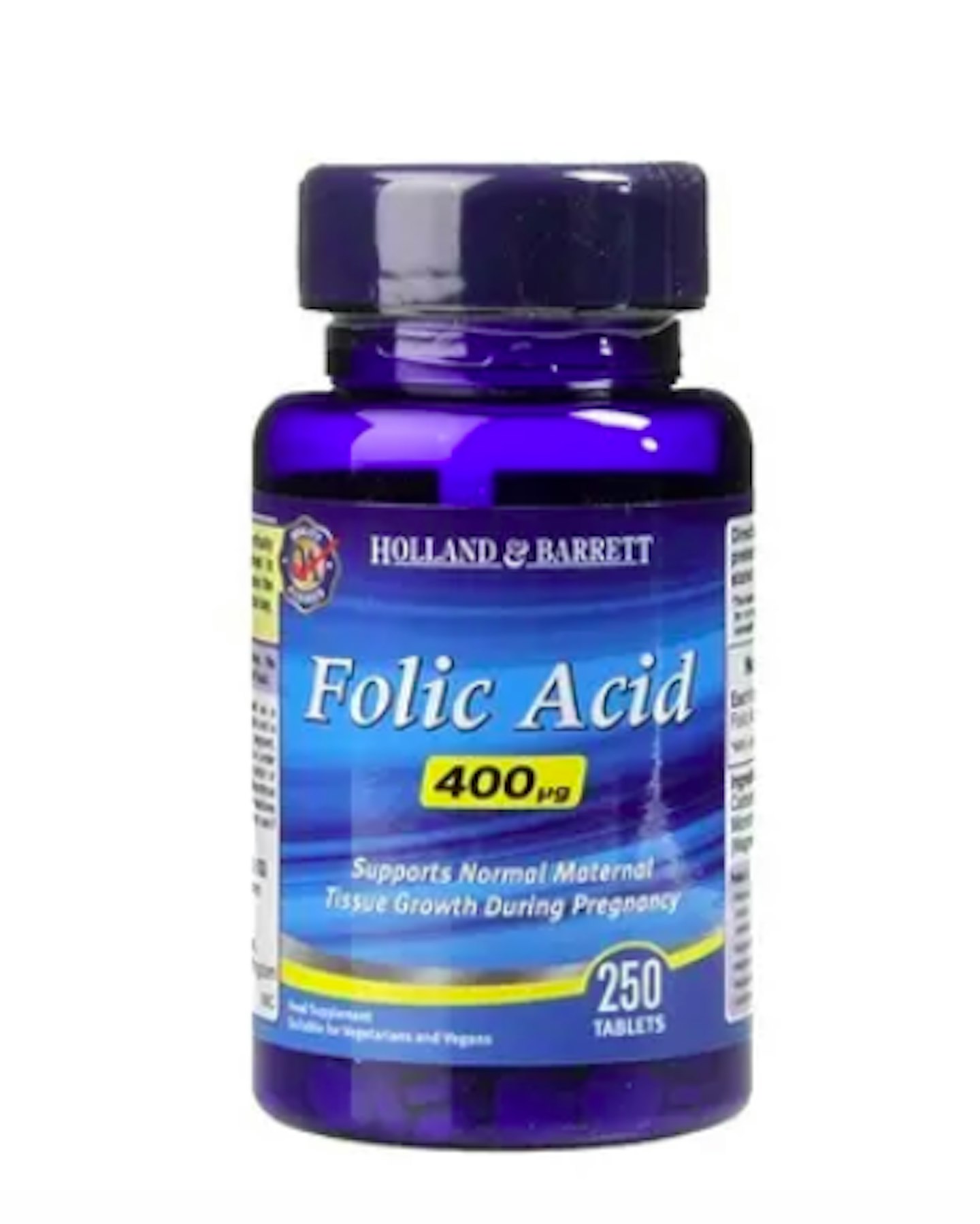
www.hollandandbarrett.com
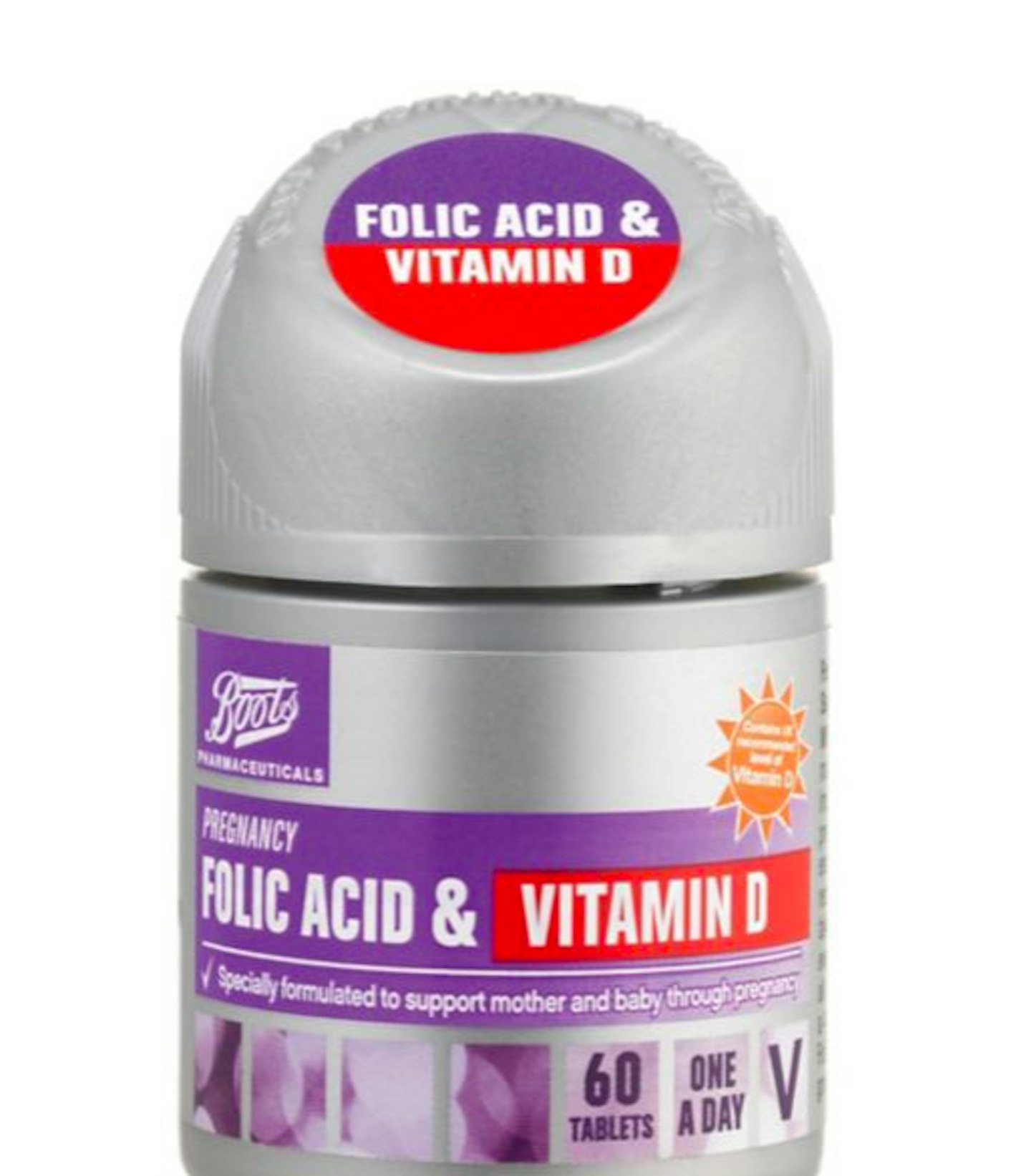
www.boots.com
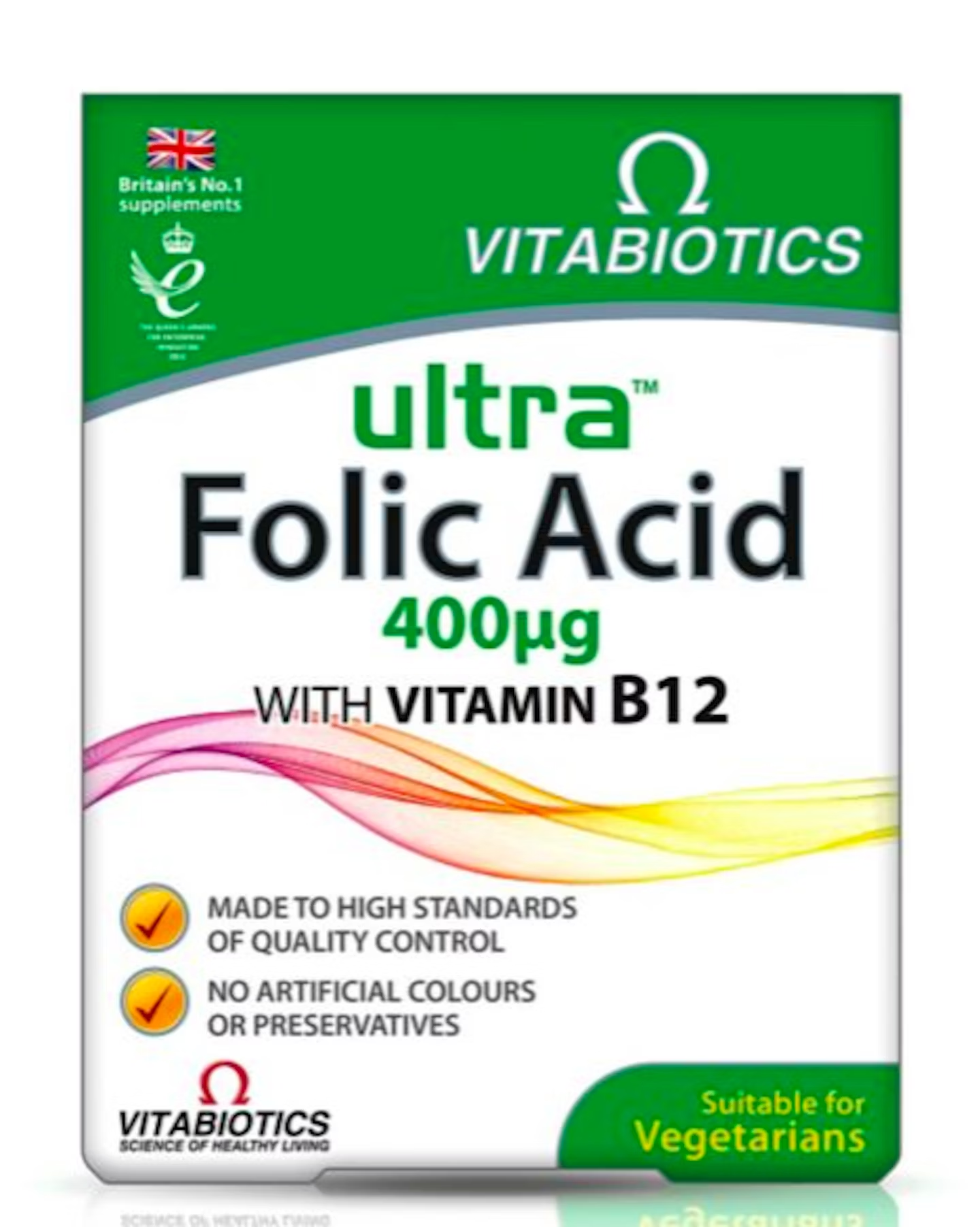
www.boots.com
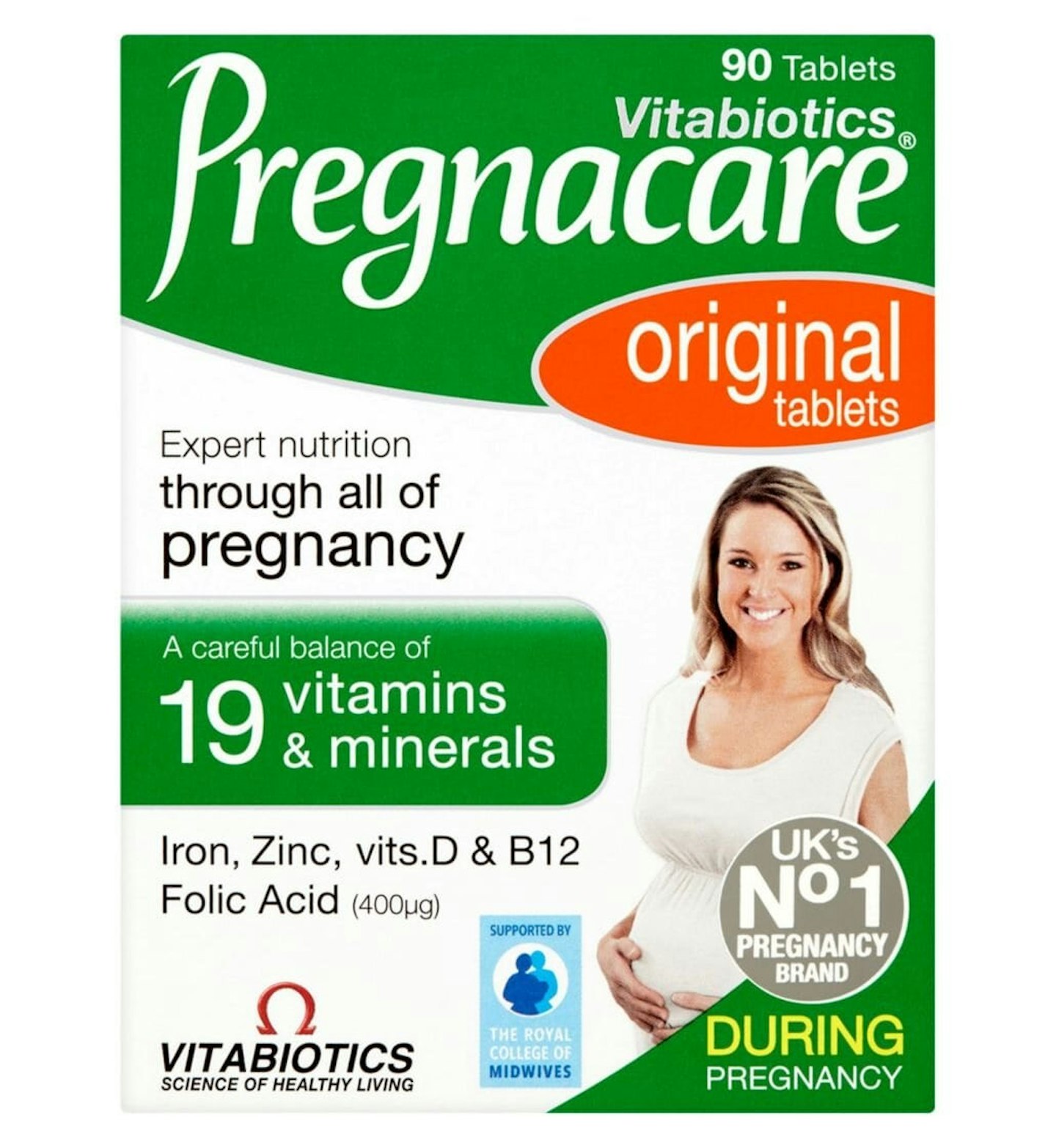
www.boots.com
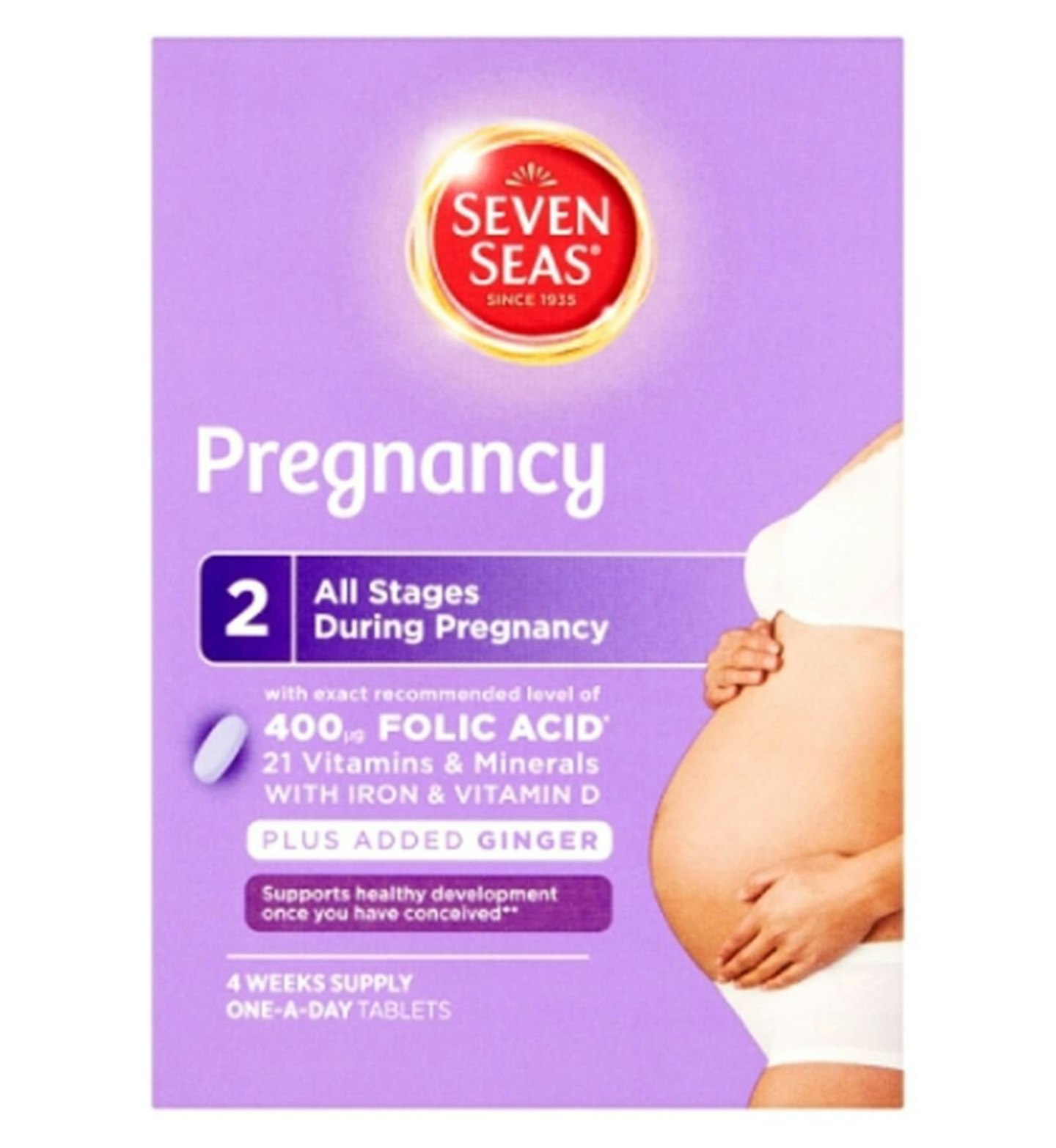
www.boots.com
